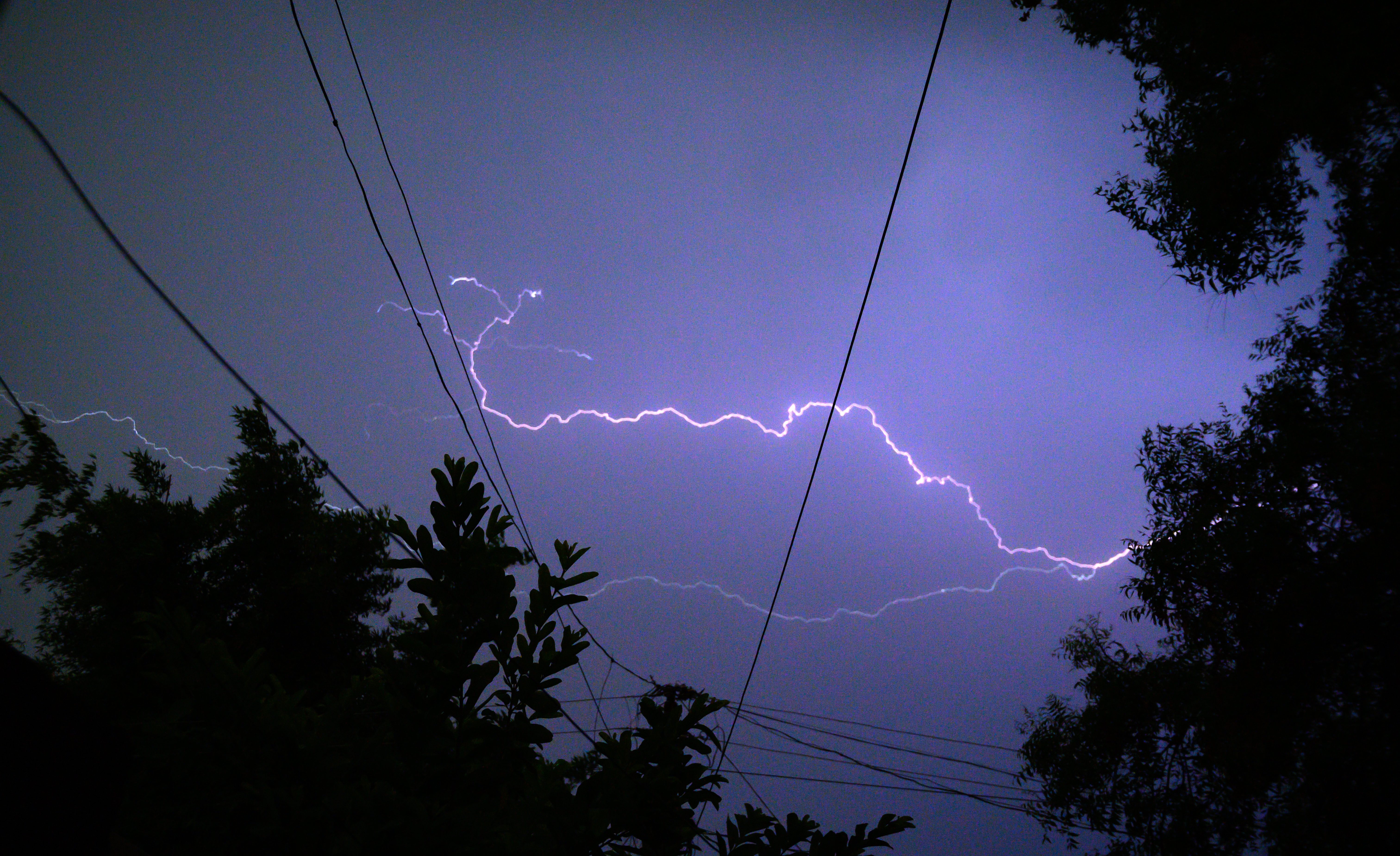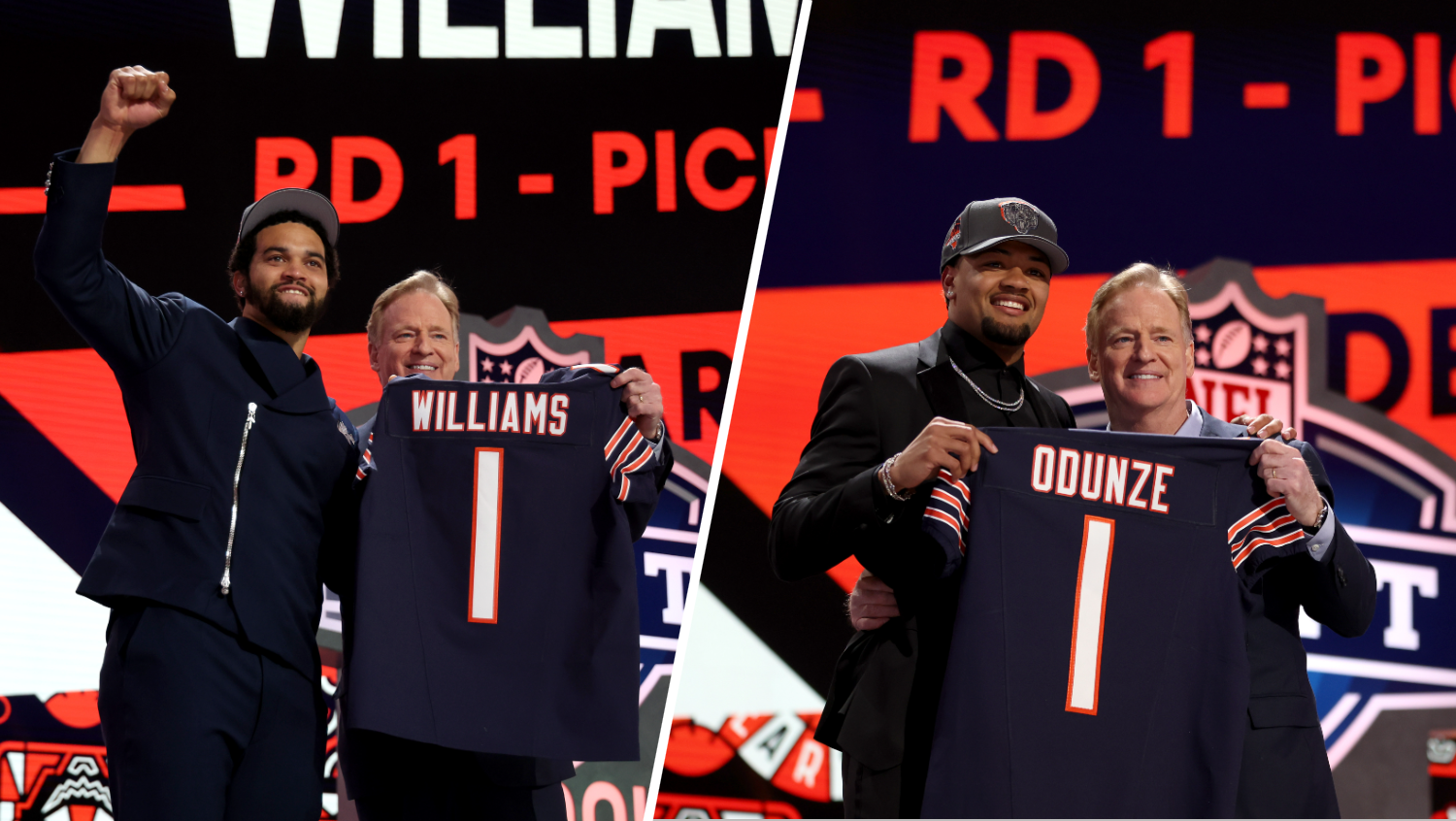Pregnant women will soon be eligible to receive the coronavirus vaccine in Illinois as the state prepares to expand its Phase 1B criteria to include some high-risk conditions, but should they opt to receive it?
Here's the latest guidance surrounding pregnancy and the COVID-19 vaccine:
Is it Recommended That Pregnant Women Receive the COVID Vaccine?
According to the Centers for Disease Control and Prevention, along with the Advisory Committee on Immunization Practices, certain groups like health care personnel and other frontline essential workers should be offered vaccination during the first months of vaccine rollout.
"People who are pregnant and part of a group recommended to receive the COVID-19 vaccine may choose to be vaccinated," the agency stated. "If they have questions about getting vaccinated, a discussion with a healthcare provider might help them make an informed decision."
"Based on how mRNA vaccines work, experts believe they are unlikely to pose a specific risk for people who are pregnant," the CDC stated. "However, the actual risks of mRNA vaccines to the pregnant person and her fetus are unknown because these vaccines have not been studied in pregnant women."
The World Health Organization took a similar stance, saying "we don’t have any specific reason to believe there will be specific risks that would outweigh the benefits of vaccination for pregnant women."
Local
The University of Chicago Medicine agreed with the CDC, saying pregnant women should be given the choice.
"This is an individualized decision and pregnant/breastfeeding people should be offered the choice to get vaccinated," the health system said. "While data is still being collected about these vaccines, we believe that in the vast majority of cases, the benefits outweigh the risks, and the vaccine is much safer than contracting COVID-19."
The American College of Obstetricians and Gynecologists recommends that COVID-19 vaccines "should not be withheld from pregnant individuals who meet criteria for vaccination based on ACIP-recommended priority groups."
"In the interest of patient autonomy, ACOG recommends that pregnant individuals be free to make their own decision regarding COVID-19 vaccination," the group states.
What Data is Available on the Vaccine in Pregnant Women?
Still, data surrounding the vaccine and pregnancy remains "limited."
Pregnant women were excluded from trials for the vaccine, leaving little information on the vaccines' safety for expectant mothers.
Earlier this month, however, White House health advisor Dr. Anthony Fauci said there have been "no red flags" seen in the more than 10,000 pregnant women who have received vaccine shots so far.
"The FDA, as part of the typical follow up you have following the initial issuing of any [emergency use authorization] have found, thus far, and we've got to be careful, but thus far, no red flags about that, about pregnant women," Fauci told The Journal of the American Medical Association in an interview.
The CDC said studies of the Pfizer-BioNTech vaccine are ongoing, and both the Pfizer and Moderna vaccine manufacturers "are monitoring people in the clinical trials who became pregnant."
"While safety data on the use of COVID-19 vaccines in pregnancy are not currently available, there are also no data to indicate that the vaccines should be contraindicated, and no safety signals were generated from DART studies for the Pfizer-BioNtech and Moderna COVID-19 vaccines," the American College of Obstetricians and Gynecologists states.
What Should Pregnant Women Consider Before Getting the Vaccine?
The CDC recommends expectant women consider the following, and address it with their doctors, as they prepare to make their decision:
- The likelihood of exposure to SARS-CoV-2, the virus that causes COVID-19
- Risks of COVID-19 to them and potential risks to their fetuses
- What is known about the vaccine: how well it works to develop protection in the body, known side effects of the vaccine, and lack of data during pregnancy
Are Pregnant Women at a Higher-Risk for COVID-19 Infections?
The CDC noted that pregnant people who contract COVID-19 "have an increased risk of severe illness," including the risk of an infection that could lead to ICU admission, mechanical ventilation, and possibly death. Pregnant people with COVID-19 could also face an increased risk of adverse pregnancy outcomes, such as preterm birth, the agency added.
According to preliminary findings of a study from the National Institutes of Health, pregnant women who experienced severe symptoms of COVID-19 had a higher risk of complications during and after pregnancy.
"Compared to nonpregnant women who have the same health and age, a COVID-infected woman is about 1.3 to 1.4 times more likely to end up in the hospital when she's pregnant," Dr. Regan Theiler, a Mayo Clinic obstetrician, said in a statement.
On the other hand, the University of Chicago Medicine reports that for some people vaccinated late in their pregnancy, "it is likely that the antibodies your body produces in response to the vaccine will be passed to the fetus through the placenta and may provide some protection against COVID-19, the same way a flu vaccine can help protect your baby against the flu."
What About Vaccine Side Effects?
Pregnant women are not expected to experience more severe side effects from the vaccine, experts said.
According to the CDC, some people who received the vaccine did experience a fever, particularly after their second dose.
"Pregnant people who experience fever following vaccination may be counseled to take acetaminophen because fever has been associated with adverse pregnancy outcomes," the CDC stated. "Acetaminophen may be offered as an option for pregnant women experiencing other post-vaccination symptoms as well."
Pregnant people should also talk to their doctors if they have a history of allergic reactions to any other vaccines or injectable therapy.
Why is the US Allowing Pregnant Women to Get the Vaccine but Not the UK?
The UK currently recommends pregnant people not be vaccinated, "unless you are at high risk." Those who received the first dose and then became pregnant should delay receiving their second dose, unless they are high-risk, the government advised.
"Although the vaccine has not been tested in pregnancy, you may decide that the known risks from COVID-19 are so clear that you wish to go ahead with vaccination," the government states. "There is no advice to avoid pregnancy after COVID-19 vaccination."
According to the University of Chicago Medicine, "here in the U.S., our regulators decided to give people in this group the option to get the vaccine if they choose."
What About Women Who Are Breastfeeding?
The CDC reported there is currently "no data on the safety of COVID-19 vaccines in lactating women or on the effects of mRNA vaccines on the breastfed infant or on milk production/excretion."
"mRNA vaccines are not thought to be a risk to the breastfeeding infant," the agency states. "People who are breastfeeding and are part of a group recommended to receive a COVID-19 vaccine, such as healthcare personnel, may choose to be vaccinated."
According to the American College of Obstetricians and Gynecologists, "theoretical concerns regarding the safety of vaccinating lactating individuals do not outweigh the potential benefits of receiving the vaccine."
The University of Chicago Medicine said that experts "do not believe that breastfeeding will provide any antibody protection to the baby."
"However, we do not yet have any data on this point and it should be clarified in future studies," the health care group noted.
If You Plan on Getting Pregnant Should You Delay Getting the Vaccine?
Experts continue to advise discussing vaccination plans with health care providers for those who are or expect to become pregnant.
"Current recommendations say there is no reason to delay conception," the University of Chicago Medicine reports. "If you become pregnant after receiving your first dose of the COVID-19 vaccine, you should not delay getting the second booster dose as scheduled."
The group notes that the second dose is more likely to carry side effects, including a possible fever, however, which is experienced by 10-15% of vaccine recipients.
"If this is a concern, the current recommendation is that you take a pregnancy-safe fever reducer such as Tylenol if you experience a fever after getting vaccinated," the health group recommends. "You may also wish to take Tylenol proactively before getting vaccinated to help prevent a fever."
The American College of Obstetricians and Gynecologists recommends "individuals who are actively trying to become pregnant or are contemplating pregnancy and meet the criteria for vaccination based on ACIP prioritization recommendations" do receive the vaccine. The group also says it is "not necessary to delay pregnancy after completing both doses of the COVID-19 vaccine" and those who become pregnant after receiving the first dose should continue on with their second.
In addition, those undergoing fertility treatments should continue their treatments as well as discuss their vaccination plan with their doctors, medical experts said.
"Speak with your physician and/or fertility specialists to make the decision that is best for you," University of Chicago Medicine recommends.
COVID-19 mRNA vaccines are not thought to cause an increased risk of infertility, according to ACOG.
When Can Pregnant Women Receive the Vaccine?
In Illinois, pregnant women who are part of currently eligible groups have the option to receive the vaccine. Currently, Illinois is in its first part of Phase 1B, which includes frontline essential workers and residents aged 65 and older. Health care workers and staff and residents of long-term care facilities were eligible for vaccination in Phase 1A of the state's plan.
Illinois Gov. J.B. Pritzker announced Wednesday, however, that the state expects to add people with "a high-risk medical condition" or comorbidity later this month. The list includes those with cancer, diabetes, obesity, women who are pregnant, and those with several other conditions.
"In light of a steadily increasing federal vaccine supply, Illinois is making plans to expand Phase 1B eligibility on February 25 to people who have comorbidities and underlying conditions as defined by the CDC," the governor's office said in a release. "In addition, Illinois will also prioritize individuals with disabilities."
The list of qualifying high-risk medical conditions (which is subject to change) includes:
- Cancer
- Chronic Kidney Disease
- COPD (Chronic Obstructive Pulmonary Disease)
- Diabetes
- Heart Condition
- Immunocompromised State from a Solid Organ Transplant
- Obesity
- Pregnancy
- Pulmonary Disease
- Sickle Cell Disease
“Those who are under 65 and live with comorbidities, such as cancer survivors or those living with heart disease, have an elevated risk of serious complications or death if they contract COVID-19," Pritzker said in a statement. "Illinois is moving forward in accordance with guidance from the CDC to expand our eligible population as supply allows, getting us closer to the point when the vaccine is widely available to all who want it. In the meantime, I encourage all Illinoisans to wear our masks and follow the mitigations so that more of our neighbors are healthy and alive when it’s their turn in the vaccination line.”
The expansion applies to those 16 and older who weren't otherwise covered in previous eligibility categories, the state said, adding that it plans to work with local health departments and other providers as eligibility increases.
For a complete look at where and how you can make an appointment in Illinois or where you can receive vaccine information for your area, click here.



